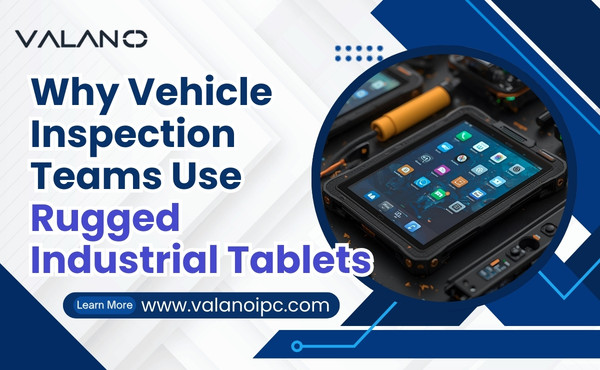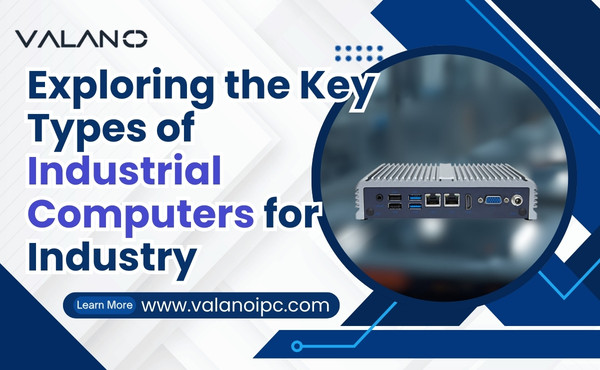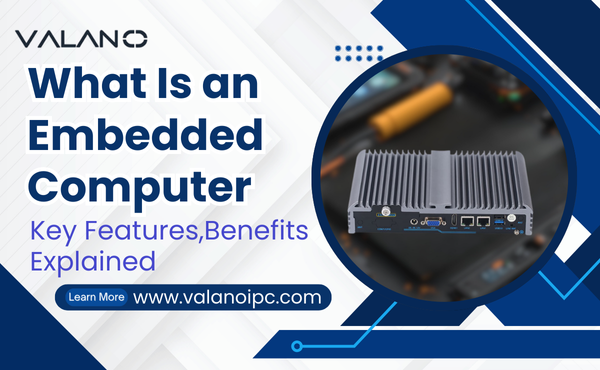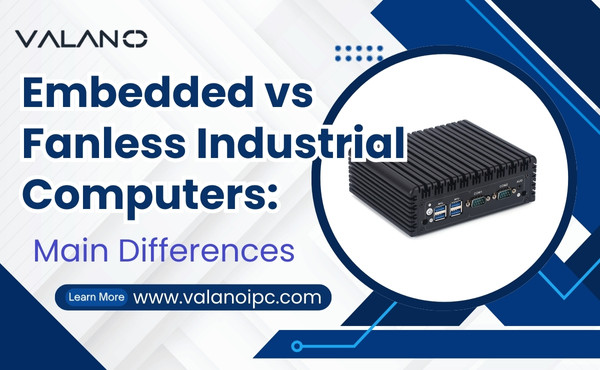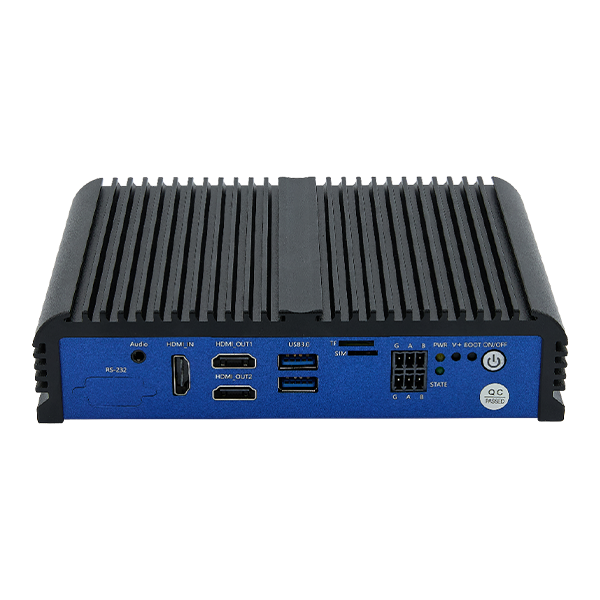
Industrial computer failures can significantly impact your operations and lead to substantial financial losses. Large factories frequently experience shutdowns lasting more than a day each month due to these failures. This results in costs of approximately $532,000 per hour, totaling around $172 million annually. In addition to financial losses, industrial computer failures can halt production, delay shipments, and negatively affect customer service. Understanding the reasons behind these failures and implementing effective strategies to prevent them can be beneficial. This approach will reduce downtime and mitigate the adverse effects on your business.
Key Takeaways
Too much heat often breaks industrial computers. Keep them cool by allowing good airflow and using proper cooling tools.
Cleaning and upkeep stop dust and dirt from hurting computers. Clean them every 3 to 6 months to keep them working well.
Power spikes can damage fragile parts. Use surge protectors and backup power to protect your machines from electrical problems.
Overheating and Poor Ventilation
Why Overheating Causes Industrial Computer Failures
Overheating is a major cause of computer problems. Industrial computers often operate in hot and confined spaces with limited airflow. Without proper cooling, excessive heat can damage essential components, like processors and batteries. If temperatures exceed 150°F (70°C) for extended periods, the system can slow down, crash, or even fail completely.
How to Keep Your Industrial Computer Cool
Preventing overheating is simple when you focus on airflow and cooling. Industrial computers are often equipped with cooling solutions, like fans or liquid cooling systems, that help maintain an optimal temperature. For example, water-cooled systems can remove up to 2000 watts of heat. Keeping your computer in an open space with proper ventilation and using fanless designs can also make a big difference.
Best Practices to Avoid Overheating and Failures
To stop overheating and keep systems running:
Place computer cabinets as the manufacturer suggests.
Make sure air flows freely and leave space between parts.
Keep vents clear and clean out dust often.
Keep room temperatures below 77°F and humidity between 35%-80%.
Upgrade fans or use liquid cooling for powerful systems.
By following these tips, you can lower the chance of computer failures and keep systems working well.
Dust, Dirt, and Contaminants
How Dust and Dirt Cause Problems in Industrial Computers
Dust and dirt may seem harmless, but they can cause serious damage to industrial computers over time. These particles can clog vents, cover heat sinks, and prevent proper airflow, leading to overheating. As the temperature rises, components may fail or even short-circuit. Dust also interferes with electrical signals, increasing the chances of system crashes and costly downtime.
How to Clean and Take Care of Your Industrial PC
Regular cleaning is one of the best ways to prevent dust from causing problems. Use compressed air to blow dust out of vents and fans, and gently clean heat sinks with a soft brush. Avoid using water or harsh chemicals that could damage the computer. Make cleaning and maintenance a routine part of your equipment care to keep everything running smoothly.
Ways to Protect Industrial Computers
Aside from regular cleaning, there are a few ways to protect your computers from dust and dirt damage:
Check Enclosure Seals: Ensure that the seals are intact and there are no gaps where dust or moisture can enter.
Ensure Proper Airflow: Even with enclosures, it’s important to make sure air can circulate freely inside the system. Avoid placing the machine in confined spaces with poor ventilation.
Condensation Control: If your equipment is used in high-humidity environments, make sure the enclosures are properly sealed to prevent moisture buildup, which can cause corrosion and electrical issues.
Power Surges and Electrical Problems
Why Power Surges Harm Industrial Computers
Power surges can cause big problems for computers. These unexpected spikes in voltage can damage sensitive components, causing crashes, hardware failures, and potential data loss. Ensuring a stable power supply is essential to keeping your systems running smoothly and avoiding expensive downtime.
How to Keep Your Computer Safe from Power Surges
Protecting your equipment starts with using the right tools. Surge protectors help divert excess voltage, preventing damage to your computer. Additionally, using backup power systems like uninterruptible power supplies (UPS) can further safeguard your machines from electrical problems.
Backup Power for Industrial Computers
Backup power is important during outages to keep systems running. Generators and UPS (uninterruptible power supplies) are good options. Generators work well for big factories, while UPS systems are great for data centers. Both help stabilize power, stop fluctuations, and save data.
More industries now use backup systems to prepare for emergencies. These systems store energy and deliver power quickly when needed. A good backup plan reduces downtime and protects your equipment from harm.
Environmental Factors: Temperature and Humidity
How Extreme Temperature and Humidity Harm Industrial Computers
Extreme temperatures and high humidity can significantly impact the performance of industrial computers. Excessive heat can cause plastic parts to deform, while cold temperatures make them brittle and prone to cracking. Cracks allow moisture and dirt to enter the system, leading to hardware failures. High humidity can be especially damaging, causing rust and circuit corrosion.
Ways to Manage Temperature and Humidity for Your Computer
You can make your computer last longer by controlling its environment. Keep the workspace temperature steady. Rugged computers are built to handle heat without needing fans. Cold places can cause water droplets to form, which can damage parts. Use insulation and rugged designs to stop this. High humidity causes water buildup, which rusts metal and breaks circuits. Dehumidifiers and climate-controlled rooms help keep conditions safe and lower failure risks.
Sealed Enclosures for Extra Protection
Sealed enclosures are a great way to protect computers from harsh environments. They block heat, moisture, dust, and dirt from harming your system. These enclosures also prevent downtime and keep your data safe. That’s why many industries prefer using them.
Sealed enclosures are key to keeping industrial computers safe. They stop damage, downtime, and data loss.
By using sealed enclosures and managing temperature and humidity, you can avoid computer failures and keep them working for a long time.
Lack of Maintenance and Upgrades
Why Skipping Maintenance Causes Industrial Computer Problems
Timely and effective repair is crucial to minimize the impact of industrial computer failures.Neglecting regular maintenance can lead to costly issues down the line. Preventive maintenance (PM) helps avoid unexpected failures and system downtime. Without it, you might find yourself facing even bigger problems and longer repairs. Keeping up with routine checks and updates can save time, money, and keep your systems running efficiently.
Real-life examples show what happens without proper maintenance. In 2017, British Airways had a huge system failure due to poor care, leaving 75,000 passengers stranded. In 2019, Capital One faced a data breach affecting 100 million people because of weak systems. These cases show why regular maintenance is so important to avoid big problems and risks.
Easy Maintenance Plans to Stop Failures
A simple maintenance plan can lower downtime and save money. For example, a basic plan can cut unplanned downtime by 30-50% and reduce costs by 40%. Start by finding key parts and checking them often. Use checklists or software to track tasks. Small steps, like cleaning parts, can stop big problems.
Benefit | Statistic |
|---|---|
Downtime reduction | 30-50% less unplanned downtime |
Maintenance cost savings | 40% lower maintenance costs |
Equipment lifespan extension | 20-25% longer equipment life |
Why Upgrades Keep Systems Working Well
Upgrades are important to keep systems running smoothly. Old systems break more and have security issues. Tools like sensors can find problems early, like unusual vibrations. Fixing these early can cut downtime by 30%. Methods like Failure Mode and Effects Analysis (FMEA) help focus on stopping failures.
Upgrades also improve backup plans. New systems have better ways to keep data safe during emergencies. By upgrading on time, you can make systems work better and avoid risks from old equipment.
Software and Compatibility Issues
How Software and Hardware Mismatches Cause Problems
When software doesn’t match hardware, computers can fail. Systems might freeze, crash, or not work right. Old software or operating systems often cause these issues. Many companies struggle to update old systems, which increases risks. These problems can stop work, slow tasks, and make computers less reliable.
Testing to Prevent Compatibility Problems
Testing is important to avoid computer failures. Use checks like Installation Qualification (IQ) to ensure everything works together. IQ confirms hardware and software are installed correctly. It also checks if parts connect and work as they should. Testing includes looking at documents, inspecting parts, and taking photos or reports. These steps help find problems early and prevent downtime.
Updating Software and Testing Changes
Updating software regularly keeps systems running well. Automated tools make updates easier and reduce mistakes. Focus on fixing the most serious problems first. Regular checks help find old programs that need updates.
Testing updates before using them is very important. Set up a test system like your real one to spot issues. Keep records of updates and test results to stay organized. These steps lower failure risks, improve work, and reduce downtime.
Tip: Always test updates in a safe setup before using them. This avoids breaking your system and ensures everything works together.
Spotting Early Warning Signs and Fixing Problems Quickly
How to Spot Early Warning Signs of Industrial Computer Issues
By spotting early warning signs of industrial computer issues, you can ensure timely and effective repair, preventing minor problems from escalating into major failures. Watch for strange sounds, slower speeds, or frequent crashes. These are common clues that something might be wrong. Keeping an eye on important numbers can also help find problems early.
Metric | What It Means |
|---|---|
Mean Time to Detect (MTTD) | How long it takes to notice a problem after it starts. |
Mean Time to Repair (MTTR) | How fast issues are fixed and systems are working again. |
Mean Time Between System Incidents (MTBSI) | The average time between two problems, using MTBF and MTRS. |
Failure Rate | How often failures happen, shown as failures per time unit. |
By watching these numbers, you can find patterns and fix problems before they get worse.
Calling in Skilled Repair Experts
When problems appear, calling skilled repair experts is very important. These experts know how to find and fix issues quickly. They use special tools to figure out what’s wrong. Hiring them lowers the chance of more damage and gets your system working faster.
Choose repair services with good experience in fixing industrial computers. Check their certifications and reviews to make sure they’re reliable. A good expert can save you time and money by reducing downtime.
Steps After Repairs for Long-Term Success
After fixing your system, take steps to keep it running well. Check your system often for any damage or wear. Plan regular maintenance to keep parts in good shape. Use monitoring tools to spot unusual behavior early.
Upgrading old hardware and software also helps prevent future problems. Keep your system in a clean and stable environment to avoid damage from dust or temperature changes. These actions can stop repeated issues and keep your system running smoothly.
Tip: Regular care and monitoring are the best ways to avoid sudden system failures.
Stopping industrial computer failures means taking action early. Regular check-ups find problems before they get worse. Keeping the environment safe protects computers from damage. Updating software helps systems run better and avoids crashes. These steps lower failure risks, save time, and make equipment last longer.
Taking care of your system early keeps it reliable and working well.
By fixing overheating, dust, power issues, and software troubles, you can improve performance and avoid expensive delays.
FAQ
What causes most industrial computer failures?
Overheating is the main reason. It harms parts inside and slows performance. Using good cooling systems and doing regular maintenance can stop this problem.
How often should industrial computers be cleaned?
Clean them every 3 to 6 months. This stops dust from blocking airflow, which can lead to overheating or broken parts.
Do software updates help avoid computer failures?
Yes, updates fix problems and make systems work better together. They also improve security, lowering the chance of crashes or weak spots in the system.
Tip: Test updates in a safe setup before adding them to your system.



